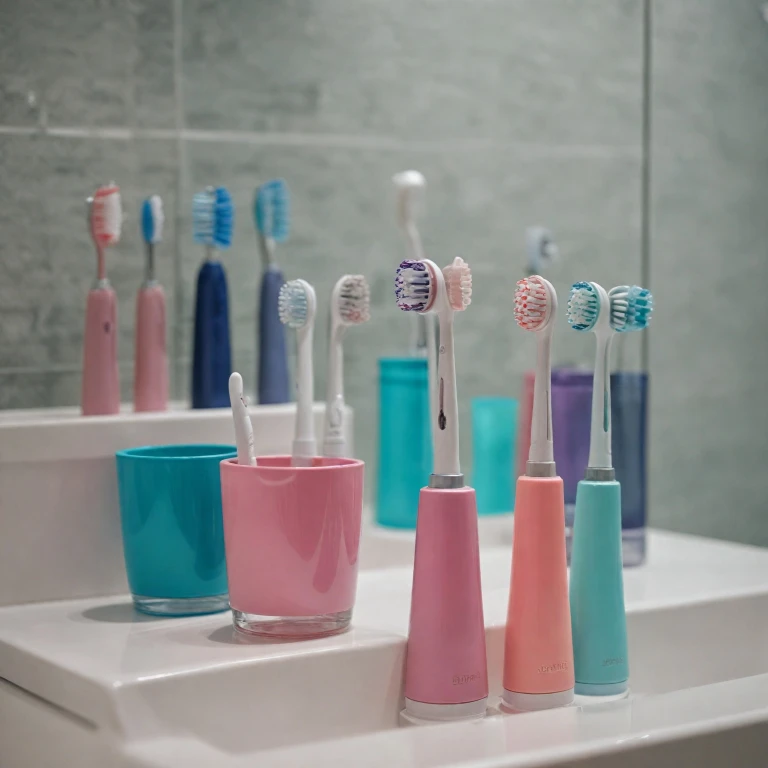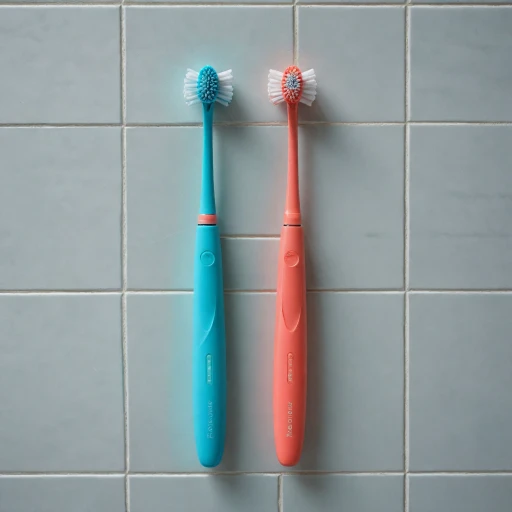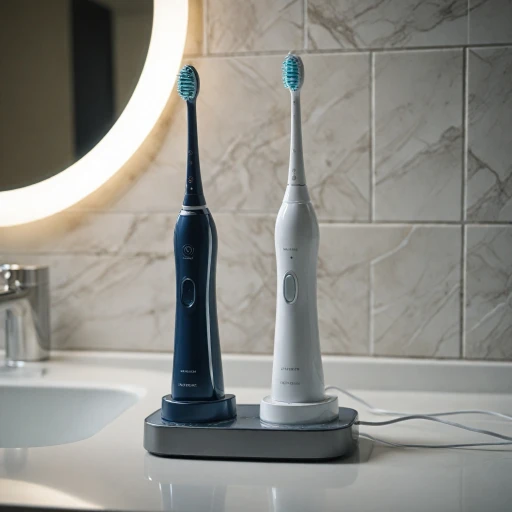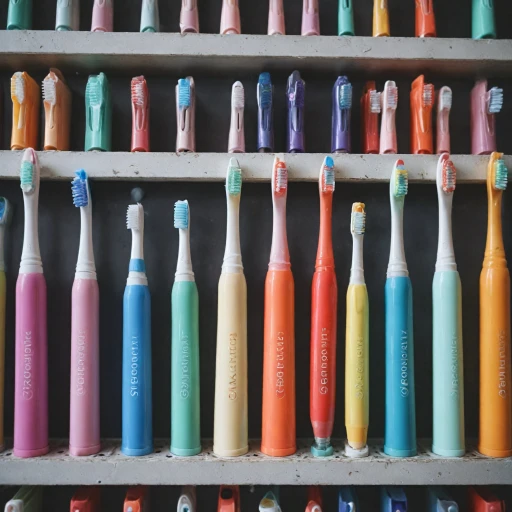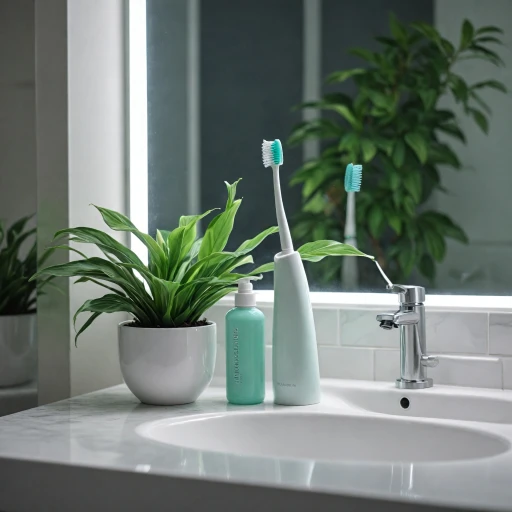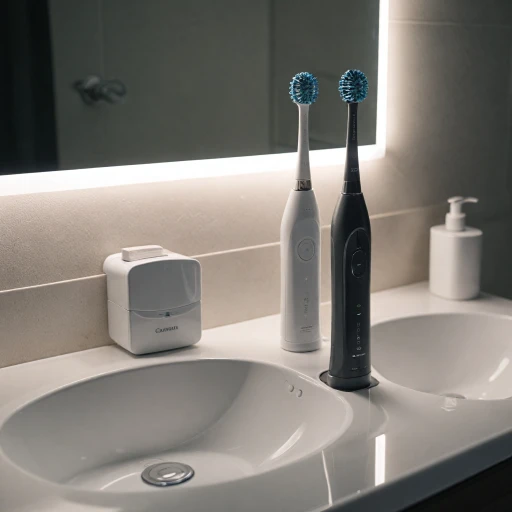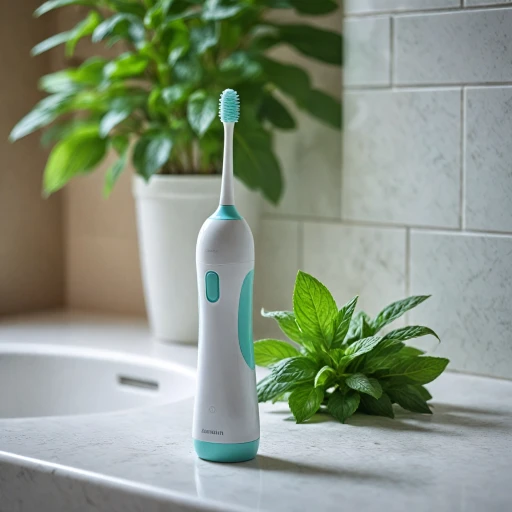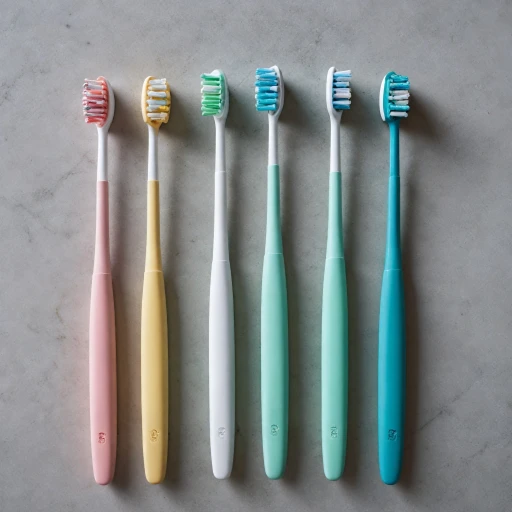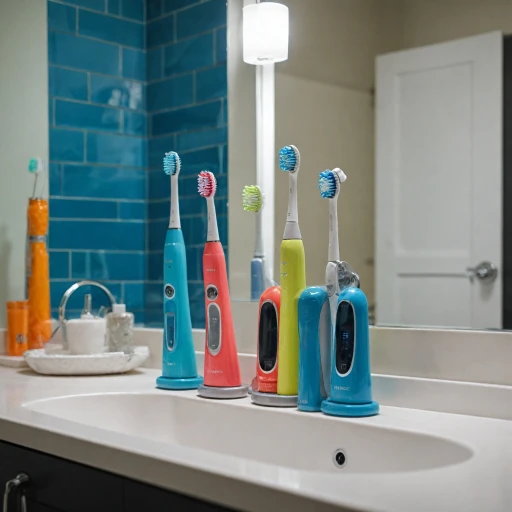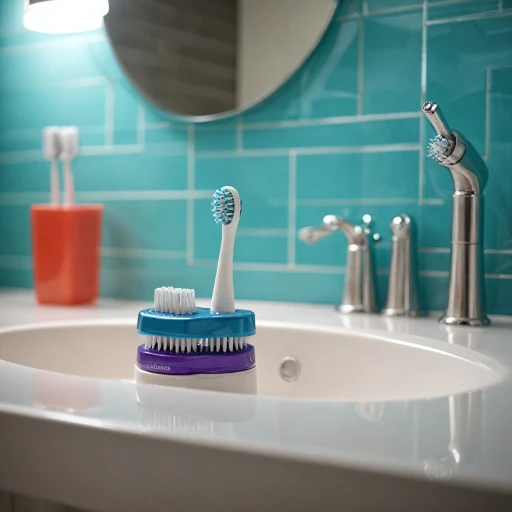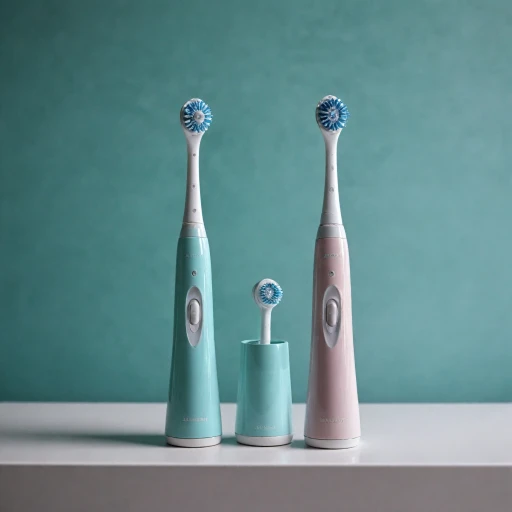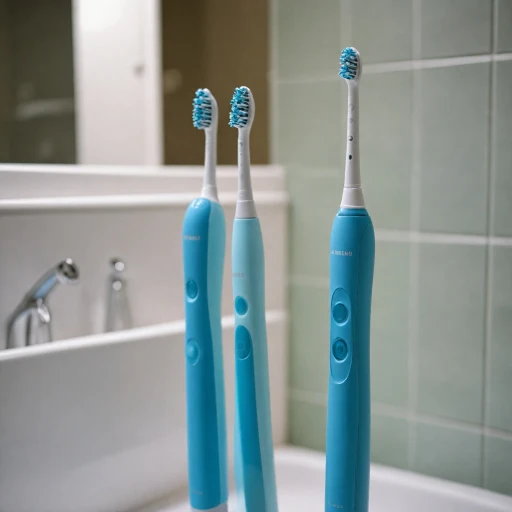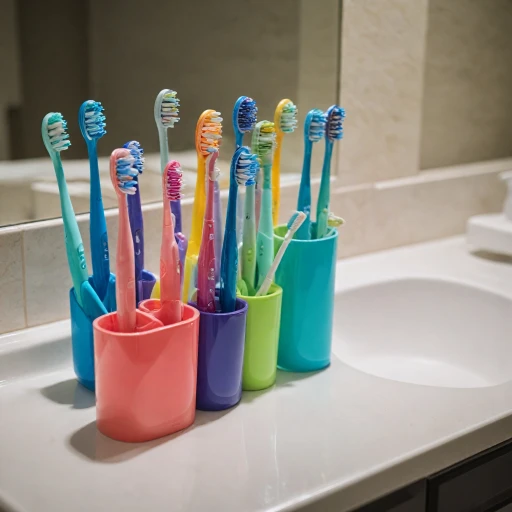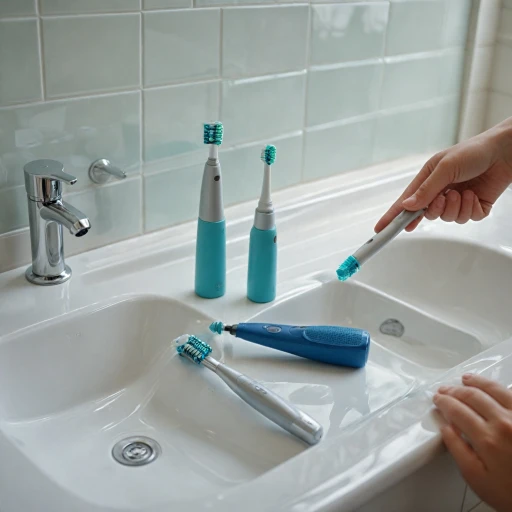
Understanding Denture Care Needs
Meeting Denture Cleaning Requirements
When it comes to maintaining optimal oral health, understanding how to care for dentures is essential. Dentures, whether full or partial, require special care to prevent damage and ensure they remain free of stains and bacteria. Choosing the right toothbrush designed specifically for cleaning dentures can significantly impact the efficiency of your oral care routine. Unlike natural teeth, dentures can be more delicate and need gentle yet thorough cleaning to avoid causing damage. A regular toothbrush might not reach certain areas effectively, leading to plaque buildup or irritation of surrounding tissues. This is where a brush designed for dentures comes into play. Consider the unique needs of your dental implants or partial dentures. Special care should be taken when selecting a brush that can navigate the intricate areas around dentures, providing both efficiency and gentle care. Using the right electric toothbrush is vital for maintaining your smile and oral health. In the next sections, we will explore key features to look for in an ideal electric toothbrush for dentures, recommended models, proper brushing techniques, and maintenance tips that can prolong the lifespan of your dental appliances.Features to Look for in an Electric Toothbrush
Key Considerations for Selecting an Electric Toothbrush
When it comes to maintaining optimal oral health with dentures, choosing an electric toothbrush involves considering some specific features designed to provide gentle care and efficient cleaning. Here are some essential aspects to look into:
- Soft Bristles: Opt for soft bristles to ensure there's no unnecessary abrasion, which may cause damage to your dentures. Soft bristles are gentle yet effective in reaching areas that require thorough cleaning.
- Brush Heads: Choose brush heads designed for denture care. These heads are often smaller and more flexible, allowing for efficient cleaning of the nooks and crannies commonly found in dentures.
- Vibration and Speed Settings: Electric toothbrushes with adjustable vibration and speed settings provide more control, allowing you to customize the cleaning process according to your comfort and needs.
- Long Battery Life: Consider a toothbrush with a long-lasting battery for uninterrupted cleaning sessions, especially if you're traveling or have busy schedules.
- Ease of Handling: A comfortable grip will make it easier to handle the toothbrush, especially important for individuals with limited dexterity or health conditions affecting hand movement.
While considering these features can immensely aid you, it's also essential to understand potential drawbacks associated with these devices. For more insights, explore the drawbacks of electric toothbrushes.
Top Electric Toothbrush Models for Dentures
Recommended Electric Toothbrushes for Denture Wearers
When it comes to selecting an electric toothbrush that caters to the unique needs of denture wearers, certain models stand out for their specially designed features. These toothbrushes prioritize gentle yet efficient cleaning, ensuring comfort and thorough oral care without causing damage to your dentures or natural teeth.
1. Gentler Brush Heads
Many electric toothbrushes come equipped with brush heads designed specifically for denture cleaning. These usually have softer bristles, making them ideal for tackling full or partial dentures without harming them. Similarly, these brush heads can provide a comprehensive clean to areas that a regular toothbrush may struggle to reach, promoting better oral health overall.
2. Modes Suited for Delicate Cleaning
Look for models with multiple cleaning modes, particularly those offering a sensitive or gentle care setting. This adapts the toothbrush's power and speed to provide efficient cleaning without being too harsh, which is instrumental for maintaining both your dentures' integrity and your gums' health. Remember, delicate care leads to prolonged lifespan of your dental implants and healthier gums.
3. Specialized Features for Enhanced Access
Dentures often require reaching into crevices and areas that are otherwise hard to clean. Certain electric toothbrushes are designed with advanced features such as oscillating-rotating bristles or angled brush heads, which can effectively reach these trouble spots. This ensures a thorough cleaning process, keeping your dentures free from food particles and plaque.
With the vast range of options, it can be overwhelming to choose the best fit. When considering investing in a tool that addresses specific denture care needs, identify the features that match your oral health priorities. For comprehensive insights into selecting the perfect electric toothbrush for various dental needs, you can explore further at choosing the best electric toothbrush resources available online.
Proper Technique for Brushing Dentures
Gentle Techniques for Effective Brushing
Brushing with an electric toothbrush for those wearing dentures requires a slightly different approach than brushing natural teeth. Proper technique ensures that your dentures, whether full or partial, remain in good condition, offering the necessary oral health benefits without causing damage.
Begin by securely holding your denture brush with a grip that allows for controlled movements. Using brush heads specifically designed for dentures or sensitive areas around dental implants is crucial for avoiding discomfort and further oral complications. Ensure that the bristles are soft enough for gentle care yet firm enough to reach areas that require thorough cleaning.
For effective cleaning, start by holding the toothbrush at a slight angle towards the gum line—if applicable—and use circular motions. Pay special attention to areas where food particles tend to accumulate. This method aids in removing debris while applying only light pressure, important for the longevity of your denture surfaces.
It’s advisable to both clean dentures and the soft tissues in your mouth. Regularly massage the gums and brush any natural teeth with care, preventing irritation and promoting thorough oral care. This technique is essential for maintaining good overall dental health.
Regularly rinsing your brush under running water during the cleaning process is recommended to keep bristles free from debris. This practice not only prolongs the life of your brush but also aids in maintaining hygiene standards.
Employing these cleaning tips not only assists in achieving efficient cleaning but also ensures special care in the upkeep of your dentures and oral health. It’s important to remember that the correct technique greatly enhances the benefits rendered by brushes best suited for those in need of additional denture care.
Common Mistakes to Avoid
Importance of Avoiding Common Brushing Errors
Navigating the world of electric toothbrushes for dentures requires more than just choosing the right model; it also involves knowing the best practices and steering clear of common pitfalls. Avoiding mistakes in your dental routines can significantly enhance your oral health and ensure efficient cleaning without damaging your dentures.
Avoid Using the Wrong Brush Angle
One of the prevalent mistakes is not maintaining the correct angle while brushing. It's essential to gently angle the bristles towards the gumline rather than brushing horizontally. This technique ensures you clean not only the dentures but also reach areas where plaque and food particles tend to accumulate.
Resist Applying Excessive Pressure
Many users mistakenly believe that using more pressure leads to cleaner teeth. However, this can cause unnecessary wear on dentures or partials and irritate the gum tissue. Electric toothbrushes are designed to do the work for you, requiring just gentle guiding motions for optimal oral care.
Don't Forget Regular Replacement
Neglecting to regularly replace brush heads can compromise brushing effectiveness. Most dental professionals recommend changing your toothbrush or brush head every three months. Keep an eye on bristle wear as worn bristles can’t clean your teeth effectively.
Avoid Using an Inadequate Toothbrush
Choosing a toothbrush not specifically designed for dentures can lead to several issues, from inefficient cleaning to damage over time. Opt for those with softer bristles which are suited for gentle care, minimizing the risk of causing damage.
Refrain from Overlooking the Cleaning of the Brush
Additionally, maintaining your denture brush itself plays a crucial role. Ensuring it remains clean and hygienic will prevent the buildup of bacteria, ultimately promoting overall oral health.
Understanding these common mistakes helps enhance your denture care routine, ensuring that your oral health stays in top shape. As you browse through different models and features, keep these tips in mind for a healthier smile.
Maintaining Your Electric Toothbrush
Tips for Keeping Your Electric Toothbrush in Top Shape
To get the most out of your electric toothbrush and ensure it's providing gentle care for your dentures and partials, some simple maintenance practices can extend its lifespan and maintain efficient cleaning performance.- Regular Cleaning: After brushing, always rinse your toothbrush head under running water to remove lingering debris. This prevents plaque build-up and ensures that your toothbrush is always ready for the next cleaning session. Consider occasionally soaking the bristles in an antibacterial mouthwash for deeper cleaning.
- Proper Denture Brush Storage: Store your toothbrush upright in a dry area to keep it free from mold and bacteria. Having a specific stand or holder designed for storing it can help protect the bristles and maintain their shape over time.
- Replacement of Brush Heads: Be sure to replace the brush heads according to your manufacturer's recommendations, usually every 3 to 4 months. This is crucial for maintaining optimal oral health, as worn-out bristles can be less effective and might cause damage to your gums or dental implants.
- Inspect for Wear and Tear: Regularly check the toothbrush for any signs of damage. This includes inspecting both the brush head and handle. If the bristles start to fray or the toothbrush loses power, it might be time for a replacement.
- Keep the Charger Clean: Ensure that the charger remains clean and dry, as exposing it to moisture can lead to functional issues. Wipe it down with a clean, dry cloth regularly to prevent build-up from occurring.
- Mind the Battery Life: For rechargeable models, follow the charging guidelines to prolong battery life. Avoid leaving it plugged in for an extended period, which can degrade the battery over time.

